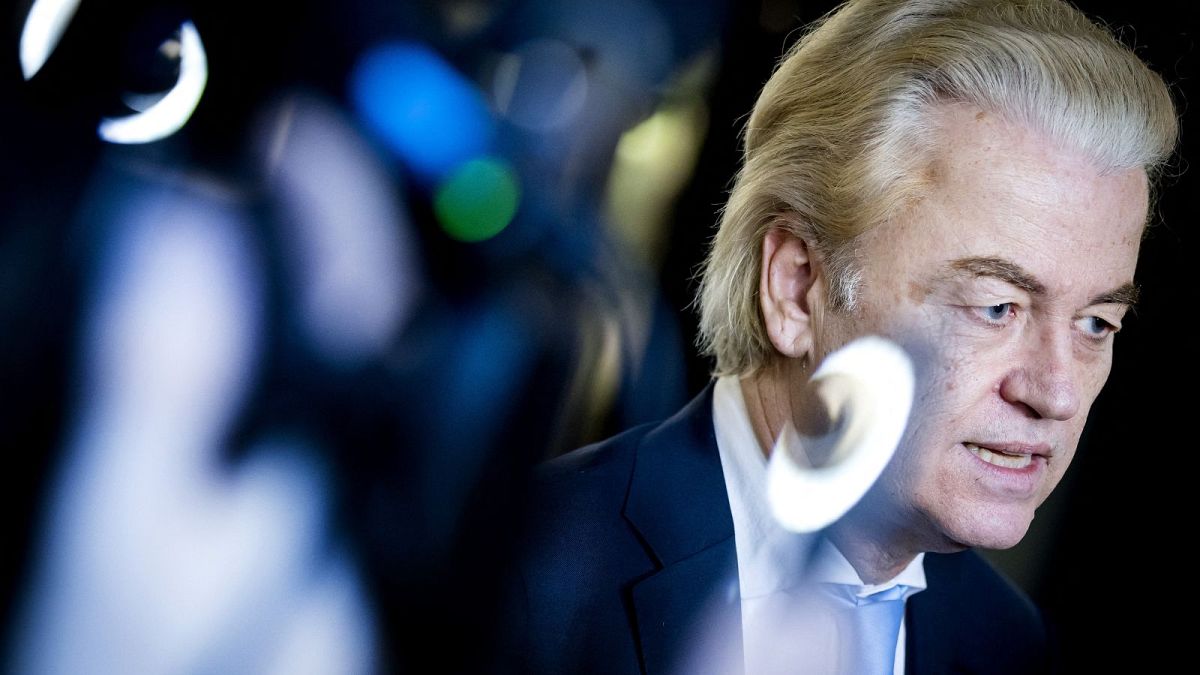The Dutch far-right politician will need the support of other parties to form a new coalition government after winning the most seats in parliament at the country’s latest election.
The Netherlands will find out on Monday if far-right politician Geert Wilders, whose party won the most seats in the recent Dutch elections, will be able to form his own government.
The victory of the hard-right provocateur in late November stunned Europe, as well as Wilders himself, who is a well-known figure in Dutch politics even as he remained at its margins for years.
But the electoral success doesn’t necessarily grant Wilders enough support to form a government, especially as many other parties seem way to join a coalition with his hard-right, anti-Muslim party, Party for Freedom (PVV).
According to its manifesto, the PVV wants to ban mosques, headscarves and the Quran in the Netherlands. Other controversial plans include cutting support to Ukraine and holding a referendum to leave the European Union.
While Wilders has toned down the most incendiary parts of its manifesto after his victory, promising to be a leader for “all Dutch people,” other politicians remain concerned about what his party would do once in government.
On Monday, an official appointed by Wilders, former minister Ronald Plasterk, will submit a report to parliament determining who is willing to work with whom to form a new government.
The process of forming a new government in the Netherlands can normally take months of negotiations because of the highly fragmented nature of the Dutch political system.
Creating a coalition around Wilders’ party might take even longer due to concerns about the nature of his party. The far-right leader needs a coalition of 76 MPs in the 150-seat parliament to be able to govern. His party has won 37 seats.
An ideal coalition for Wilders would be to bring together the agricultural party BBB - which has won 7 seats in Parliament - the People’s Party for Freedom and Democracy (VVD) - which has 24 seats - and the new pro-reform party New Contract Social (NSC) - who has 20 seats.
The leader of NSC, Pieter Omtzigt, seems unwilling to join a coalition with Wilders, saying that he’s concerned about “unconstitutional” elements in PVV’s manifesto. VVD is the party of Mark Rutte, the outgoing Prime Minister who said he would have left politics after the elections. The new party leader, Dilan Yesilgoz, who’s of Turkish origin, said she’d only support “a centre-right coalition” and she won’t join a government led by Wilders.
